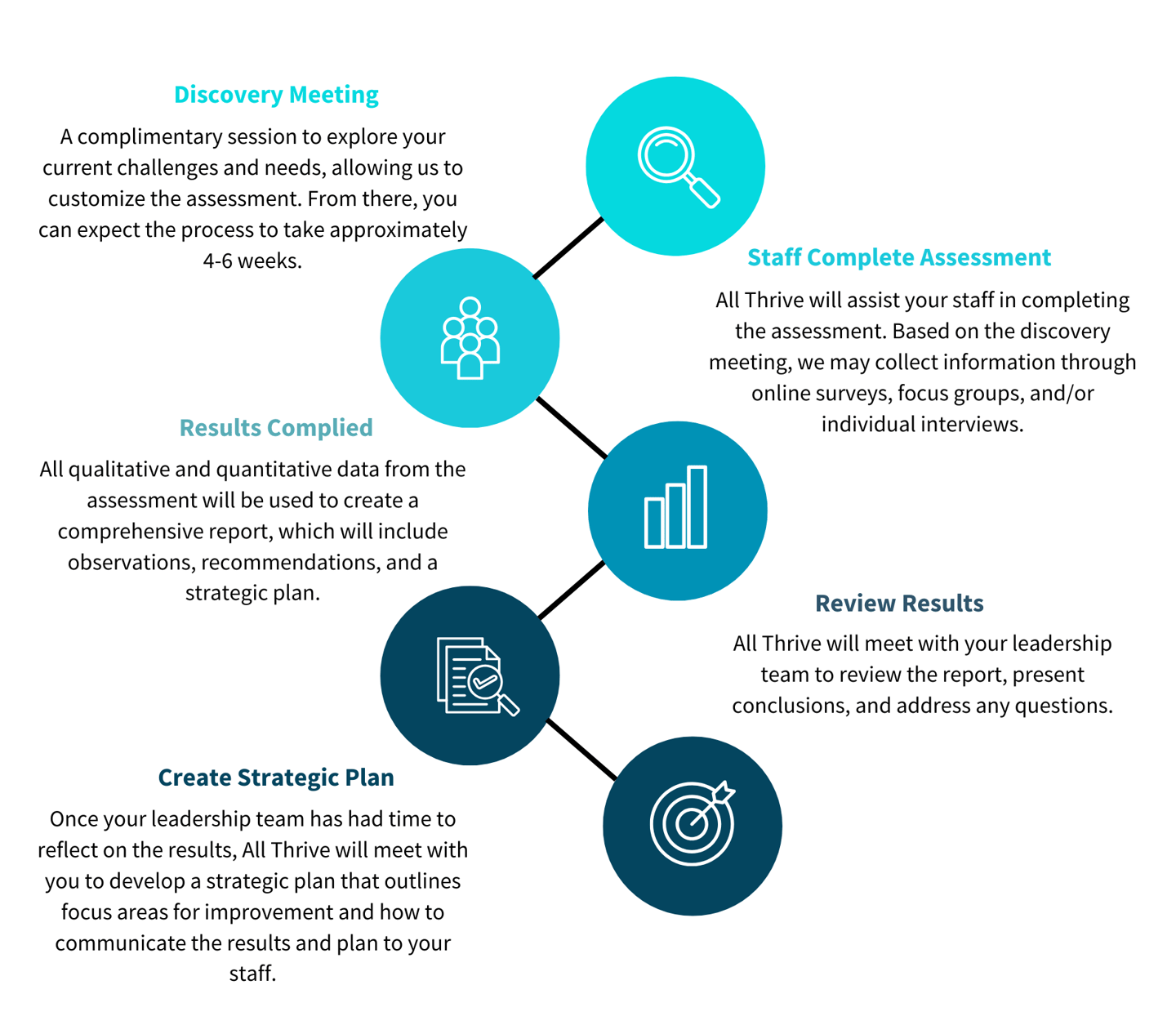Workplace Mental Health Assessments
Mental well-being is not just an issue at home or for individuals. Employees spend hours every day immersed in their workplace culture, which significantly impacts their mental health. When their mental health is compromised, it can have vast negative impacts on the organization's success and profits.
Recognizing this, the Mental Health Commission of Canada developed the Standard for Psychological Health and Safety in the Workplace to help organizations create mentally healthy environments. Using this standard, All Thrive created an assessment that will give organizations a comprehensive perspective of how their workplace culture is impacting the mental health of employees.


“Workplaces with a positive approach to psychological health and safety are better able to recruit and retain talent, have improved employee engagement, enhanced productivity, are more creative and innovative, and have higher profit levels. Other positive impacts include a reduction of several key workplace issues including the risk of conflict, grievances, turnover, disability, injury rates, absenteeism and performance, or morale problems.”
~The Standard for Psychological Health and Safety in the Workplace
If you don't feel fully equipped to implement your strategic plan without support, we're here to help. Visit our Training and Transformation page to learn more about our offerings.


Overview of the Process
Critical Factors
All Thrive's assessments are based on the Standard's 13 critical factors that impact mental well-being at work. All Thrive's assessments divide these into four categories.


Organizational Culture
• Clear leadership and expectations
• Organizational culture
• Engagement
Continual Growth
• Involvement and influence
• Growth and development
• Recognition and reward
Support
• Civility and respect
• Psychological and social support
• Psychological protection
• Physical Safety
• Psychological job demands
Time Management
• Workload management
• Work/life balance
